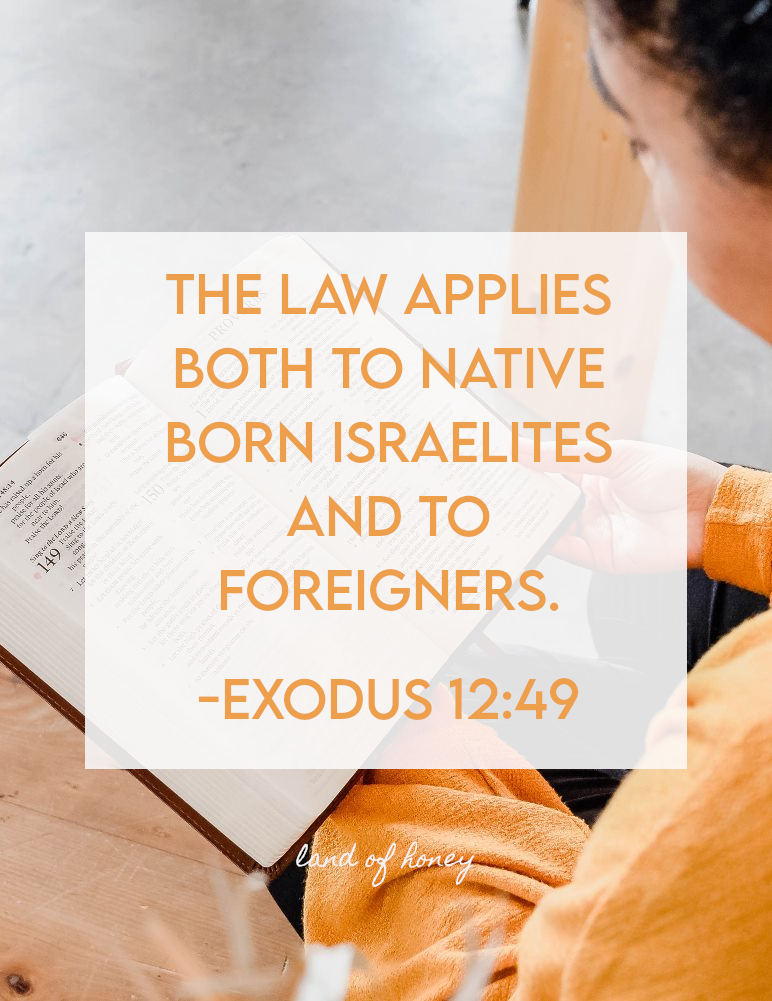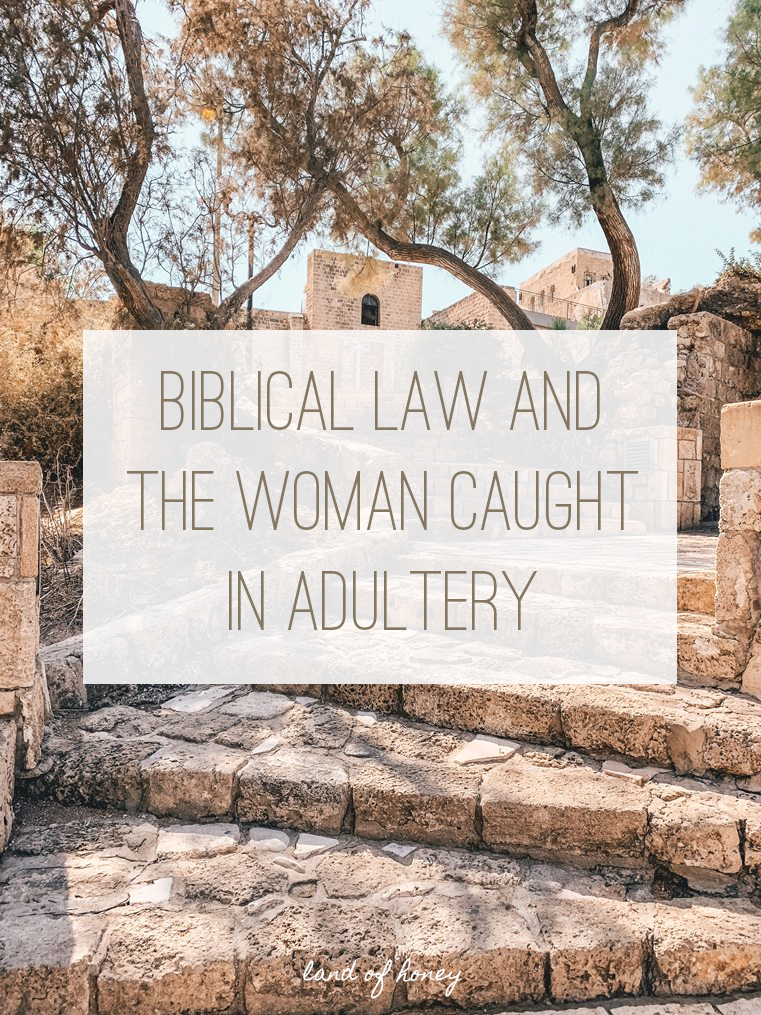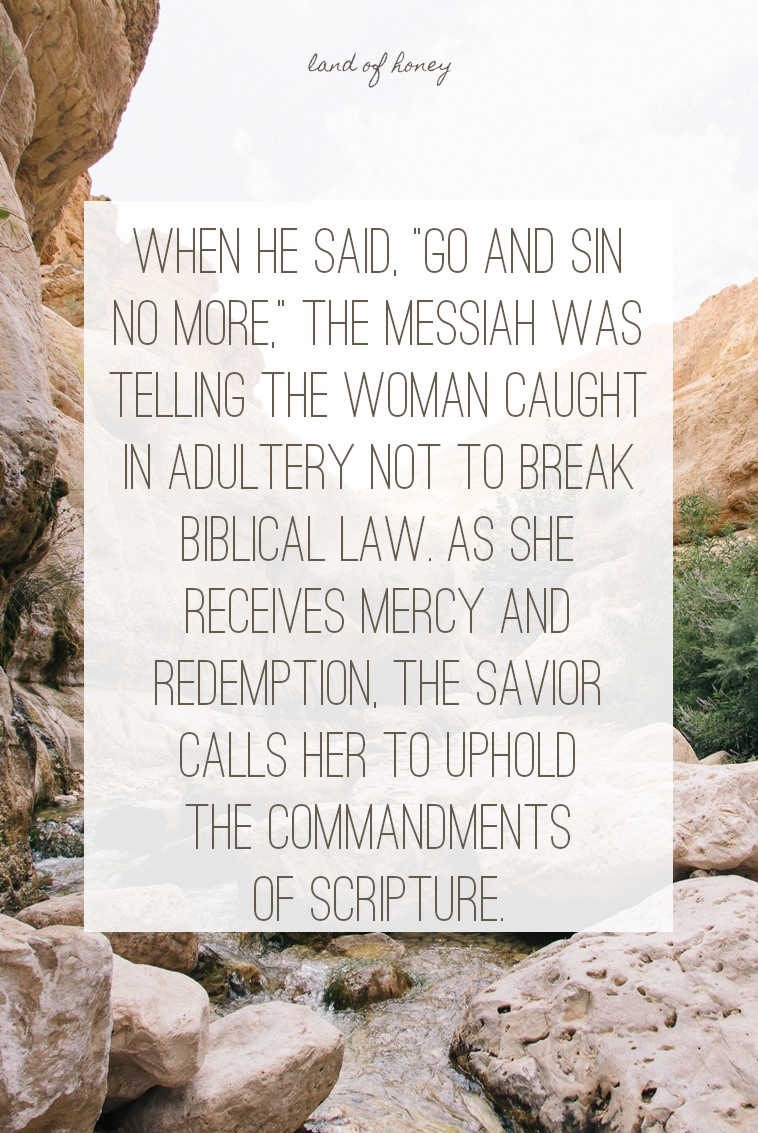I used to think that Biblical law and keeping the commandments were only expected of Jewish people, and I hear this echoed all the time. Statements like, "I don't have to do that because I'm not Jewish," "God only wants the Jewish people to keep the food laws," "Gentiles are not under the law because of Jesus," or "Those things are just for Jews," show up in my comment section all the time. If we only listen to manmade religious doctrines, this is easy to accept as truth. But if we take a look at what Scripture actually says we will find this is not the case! All believers, no matter their ancestry, are expected to keep the commandments in the Bible!
Why Biblical law is not just for Jews:
-The Bible never says this. There is nothing in the Bible about the commandments being only for Jewish people. In fact, until the New Testament Jewish people barely get a mention in Scripture. Seriously, go reread the whole thing. You will not find a phrase like that in there. There are no instructions from YHWH about limiting the gift of his word, or the expectations of keeping his commandments to Jewish people.
-The Bible expressly says Biblical law is not just for the Israelites, but also for foreigners. Exodus 12:49, "There is one Torah for the native-born and for the stranger who sojourns among you." There was no such thing as Judaism in Exodus, so this verse does not somehow mean that the Torah is only for you if you convert to Judaism or live around Jews. It's talking about people from any part of the world joining YHWH's people by serving him. No matter where you are from, the same set of commandments apply to you.
-There were no Jews present when Biblical law was given. Not a single person in Genesis through Deuteronomy (when Biblical law was given) considered themselves to be Jewish. Not one. While the tribe of Judah was present, so were eleven other tribes! We must understand that Scripture's use of Israelite is not interchangeable with the term Judaism today. There are Jews today who did have ancestors present when Biblical law was given, but many other people groups also have ancestors who were given Biblical law!
-The New Testament says there are neither Jews nor Gentiles. I really can't imagine why this statement from Galatians 3:28 would be included in Scripture if YHWH was going to hold different people groups to different standards. Recognizing this verse makes it seem rather silly to say, "God doesn't hold me to that standard because I'm a gentile"!
-The Messiah was never impressed with claims of antecedence. John the Baptist's words in Luke 3:8, "Prove by the way that you live that you have repented from sins and turned to God. Don't just say to each other, 'We're safe, for we are descendants of Abraham.' That means nothing, for I tell you that God can create children of Abraham from these very stones." The Messiah did not count relations to Abraham as some sort of extra credit or bonus. His response to those who were relying on their physical relations to Abraham was that wasn't enough, their actions should reflect that. He said that Abraham's children would do what Abraham did (John 8:39).
-Most of us don't really know where we are from. Even if you believe that Biblical law is only for those who descended physically from the Israelites who were freed from Egypt, how do you know that none of your ancestors were there? Most of us are lucky to know anything about our ancestors after the most recent five or six generations. There is simply no way of knowing for sure whether you had ancestors there or not!
Recognizing that the Living God gave one set of instructions for all people, wherever they may be from physically or whatever their religious background is, means that we should strive to honor him by keeping his commandments! Yes, we are all sinners and won't do it perfectly. But no parent would ever say that since their children won't be able to always keep their instructions perfectly, they don't expect them to bother trying. YHWH is honored by our efforts to keep his instructions, even when we fall short.
Related posts:
Why the Biblical Holidays are For All Believers
Basics of Biblical Law
Commandments or Traditions - Understanding the New Testament




5.jpg)
7.jpg)
.jpg)
.jpg)

































.JPG)

